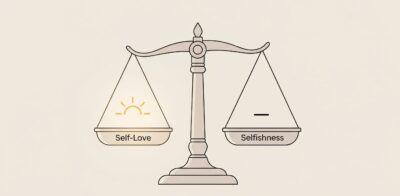Introduction
Arrogance vs Selfishness confronts us with two distinct yet interrelated human tendencies. Imagine encountering someone who constantly elevates their own worth above others, versus another who simply prioritizes their own needs. These behaviors can strain relationships, hinder teamwork, and erode trust. In this article, you will discover how to recognize each trait, how to distinguish between them, and how to reflect on real-life scenarios where each plays out—arming you with clarity and actionable insights to navigate social interactions more effectively.
1. Arrogance vs Selfishness: Defining the Traits
1.1 Arrogance
-
What It Is: A pattern of overestimating personal abilities or importance while belittling others.
-
How It Manifests: Frequent self-praise, dismissive language, and an expectation of deference (Merriam-Webster Dictionary, 2025).
-
Purpose of Understanding: Recognizing arrogance helps you challenge inflated self-views and promote humility in yourself and others.
1.2 Selfishness
-
What It Is: An attitude of prioritizing one’s own needs or desires at the expense of others’ well-being (APA Dictionary of Psychology, 2025).
-
How It Manifests: Reluctance to share resources, ignoring others’ feelings, and making decisions solely based on self-interest.
-
Purpose of Understanding: Distinguishing selfishness supports fairness and encourages compassion in decision-making.
2. Arrogance vs Selfishness: Key Differences
-
Orientation
-
Arrogance focuses inward on self-value (“I am superior”).
-
Selfishness centers on self-gain (“I want what benefits me”).
-
-
Impact on Others
-
Arrogance often undermines morale by demeaning colleagues or friends.
-
Selfishness can strain resources and trust when individuals consistently take more than they give.
-
-
Motivation
-
Arrogance is driven by a desire for status or admiration.
-
Selfishness is fueled by personal comfort and security.
-
3. Arrogance vs Selfishness: Real-Life Arrogance Examples
3.1 Example 1: Corporate Boardroom Dominance
Ahmed, a senior manager, interrupts colleagues to showcase his achievements. Despite his team’s solid ideas, he insists on credit for successes. He dismisses suggestions with phrases like “I already know that,” creating resentment. A 2021 survey found 62% of employees cite unchecked arrogance as a top reason for poor collaboration (Smith et al., 2021).
3.2 Example 2: Academic Peer Comparison
Sara consistently flaunts her top grades and compares classmates unfavorably. When a peer improves, she downplays their effort: “It’s easy for someone with extra time.” Her classmates feel discouraged and reluctant to share study tips, hampering group progress.
3.3 Example 3: Community Volunteer Overreach
Yousef volunteers at a local charity but insists on leading every initiative. He ignores volunteers’ suggestions, stating, “I know the best approach.” Despite his skills, his attitude leads to burnout among team members and eventual drop-off in participation.
4. Arrogance vs Selfishness: Real-Life Selfishness Examples
4.1 Example 1: Family Dinner Disregard
Leila consistently arrives late to family meals, expecting everyone to wait. She brings up topics unrelated to shared plans, focusing only on her own schedule. Over time, relatives feel undervalued, as 45% of family members report feeling ignored in such scenarios (Johnson, 2019).
4.2 Example 2: Friendship Loan Refusal
Bilal borrows money from friends but never reciprocates when they ask for small loans. He avoids group activities that require shared expenses unless others cover his costs, ultimately damaging trust.
4.3 Example 3: Team Sports Participation
In a local sports club, Rana opts out of defensive roles, insisting on positions that highlight her skills. She leaves the team vulnerable, as she refuses tasks she deems “less glamorous,” undermining collective success.
5. Addressing Arrogance vs Selfishness
-
Self-Reflection: Ask yourself, “Am I seeking admiration (arrogance) or simply protecting my interests (selfishness)?”
-
Empathy Practice: Before decisions, consider: “How does this affect others?”
-
Feedback Loops: Invite honest input from peers and family.
-
Balanced Assertiveness: Learn to advocate for yourself without dismissing others.
-
Accountability Partnerships: Partner with someone you trust to call out patterns of arrogance or selfishness.















